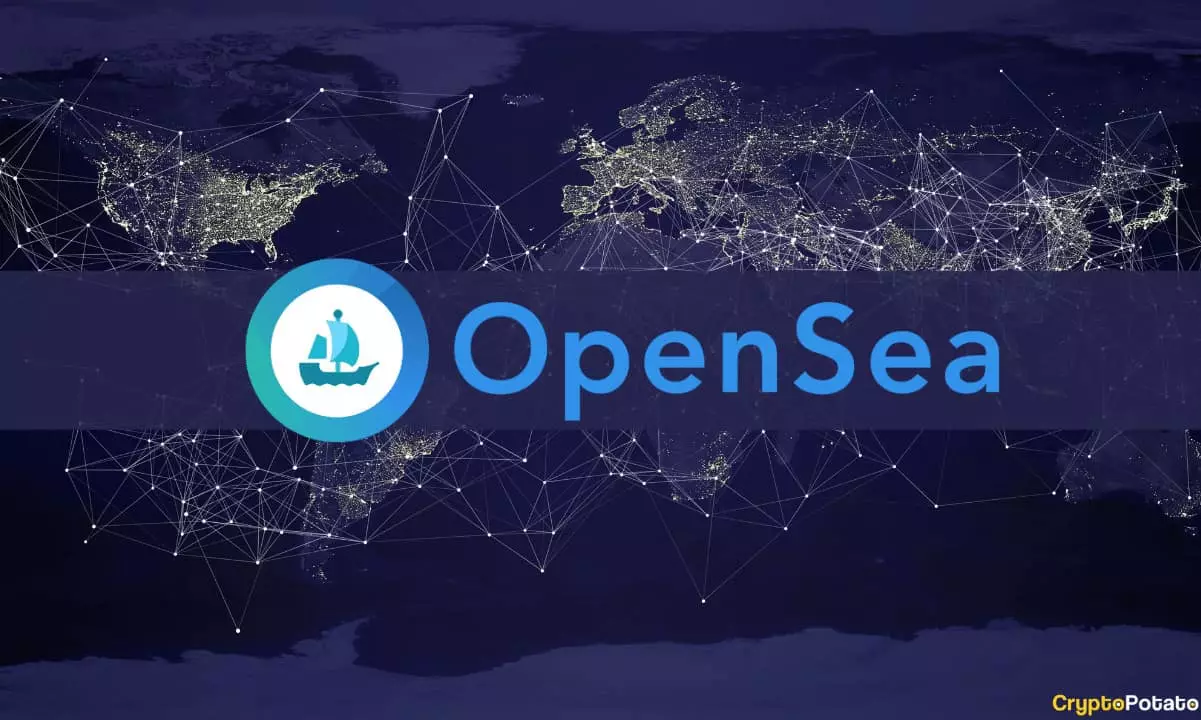OpenSea, once a frontrunner in the NFT marketplace, is now confronted with a myriad of challenges that threaten its status and sustainability. The shift from explosive growth in 2021 to a stark decline underscores the volatility inherent in the cryptocurrency and digital asset sectors. Recent indicators signal that OpenSea is struggling, not only in terms of market performance but also due to a significant upheaval within its leadership team.
Over the past few months, OpenSea has witnessed a troubling trend of high-profile resignations. Key executives like Shiva Rajaraman and Jeremy Fine have left the company to assume positions in well-regarded organizations, reflecting a potential loss of direction. The departure of these leaders—which includes crucial roles in operations, business development, and legal oversight—raises concerns over the company’s ability to steer through turbulent waters. Their new roles at notable companies, such as Rajaraman’s transition to Uber and Fine’s involvement with OpenAI, further demonstrate the perceived opportunities outside of OpenSea. This exodus of talent can foster a lack of confidence in current and prospective employees, reveal internal struggles, and signal instability to stakeholders.
Market Challenges and Increased Competition
The NFT sector, which was a powerhouse of economic vitality just two years ago, has experienced a stark decline in user engagement. OpenSea is not isolated in experiencing this downturn; the entire ecosystem of digital collectibles has seen a retreat from its former heights. Unlike OpenSea, however, emerging competitors like Blur and Magic Eden are repackaging their platforms with attractive features and lower fees, directly appealing to creators and buyers alike. This shift in consumer preferences undermines OpenSea’s previous dominance in the market.
As a result, the once-vibrant marketplace now finds itself in a fight for relevance and control, requiring innovative strategies to catch up with its more agile competitors.
Compounding its difficulties, OpenSea is now under increased scrutiny from regulatory bodies such as the United States Securities and Exchange Commission (SEC). The SEC’s investigation into whether the NFTs listed on the platform constitute unregistered securities highlights the precarious legal landscape in which the NFT industry operates. This scrutiny not only complicates OpenSea’s operational strategies but also places additional pressure on its dwindling resources and leadership.
The Path Forward: Strategic Reassessment Needed
To thrive in this challenging environment, OpenSea must undertake a comprehensive reassessment of its strategies and operations. Whether through revising its fee structures, improving user experience, or fortifying its legal standing, decisive action will be necessary to restore confidence among its user base and attract new growth. The historical prominence of OpenSea signifies its potential; however, harnessing that potential will require agility and resilience in adapting to an ever-evolving landscape.
As OpenSea navigates these myriad challenges, its ability to respond effectively to leadership loss, competitive pressures, and regulatory issues will ultimately determine its fate in the tumultuous world of NFTs. The coming months will be critical in solidifying its place on the digital frontier—or signaling its decline.


Leave a Reply